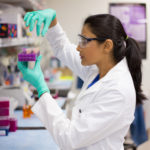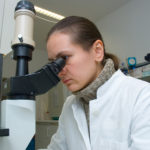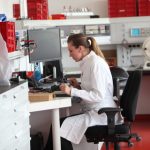
Major cause of dementia discovered
The University of Manchester has reported that an international team of scientists has confirmed the discovery of a major cause of dementia, with important implications for possible treatment and diagnosis. Professor Garth Cooper from the University of Manchester’s Division of Cardiovascular Sciences, who leads the Manchester team, said the build up of urea in the … Continue reading Major cause of dementia discovered

New insights into Chediak-Higashi syndrome
A team of researchers from the National Institutes of Health and University of Manchester have uncovered new insights into a rare genetic disease, with less than five hundred cases of the disease on record, which devastates the lives of children. Chediak-Higashi syndrome (CHS) is a complex disease, exhibiting very diversified symptoms, including predisposition to bleeding, … Continue reading New insights into Chediak-Higashi syndrome

Rewriting the understanding of how arteries mend
Scientists from the University of Manchester have discovered how the severity of trauma to arterial blood vessels governs how the body repairs itself. The University of Manchester reports Dr Urmas Roostalu said the discovery could have major implications on how complications from vascular surgeries are prevented and treated. The discovery, published in Circulation Research, shows … Continue reading Rewriting the understanding of how arteries mend

Time of day affects test results for asthma
New research, presented at the British Thoracic Society Winter Meeting, shows the human body clock significantly impacts on sample results used to diagnose and treat asthma when taken at different times of the day. This may have implications for how asthma is diagnosed and treated in the future. Dr Hannah Durrington, Senior Clinical Lecturer at … Continue reading Time of day affects test results for asthma

New disease caused by reduced β-actin levels identified
An international team of scientists and doctors has identified a new disease that results in low levels of a common protein found inside cells. The research, led by Dr Siddharth Banka from the University of Manchester, who reported on the study, and the Manchester Centre for Genomic Medicine, St Mary’s Hospital, is published in the … Continue reading New disease caused by reduced β-actin levels identified

Blood test could help predict return of skin cancer
Scientists at the CRUK Manchester Institute, based at the University of Manchester, have discovered that testing the blood of people with skin cancer for tumour DNA could help predict the chances of an aggressive cancer returning. The University of Manchester reports the findings, published in the Annals of Oncology, could pave the way to identifying … Continue reading Blood test could help predict return of skin cancer

Sanfilippo syndrome could be successfully treated
Scientists from the University of Manchester believe children with Sanfilippo, a rare terminal disorder that affects children’s brains, could be treated successfully for the first time. There are currently four types of Sanfilippo syndrome, Type A, B, C and D, which are caused by a lack of enzymes, which helps to break down and recycle … Continue reading Sanfilippo syndrome could be successfully treated

Wounds heal more quickly if they happen in the day
A new study has discovered how the human body clock causes wounds, such as cuts and burns, to heal approximately 60% faster if the injury happens during the day rather than at night. This could have implications for medical procedures such as surgery and provides targets for developing drugs that improve wound healing, according to … Continue reading Wounds heal more quickly if they happen in the day

New genetic test for breast cancer
The University of Manchester has reported that women who have a family history of breast cancer are set to benefit from a new genetic test at Manchester University NHS Foundation Trust (MFT) that assesses breast cancer risk, with plans for it to enter clinical practice within the next six months. Developed by researchers at MFT … Continue reading New genetic test for breast cancer

Calls to improve regenerative medicine
The University of Manchester has reported that a Lancet commission of senior scientists has demanded root and branch reform of the way experimental therapies associated with regenerative medicine are carried out. The commission, led by cell biologist Professor Giulio Cossu from the University of Manchester, said the specialism is held back by poor quality science, … Continue reading Calls to improve regenerative medicine








